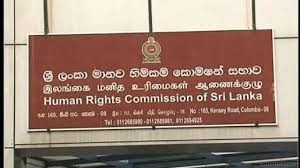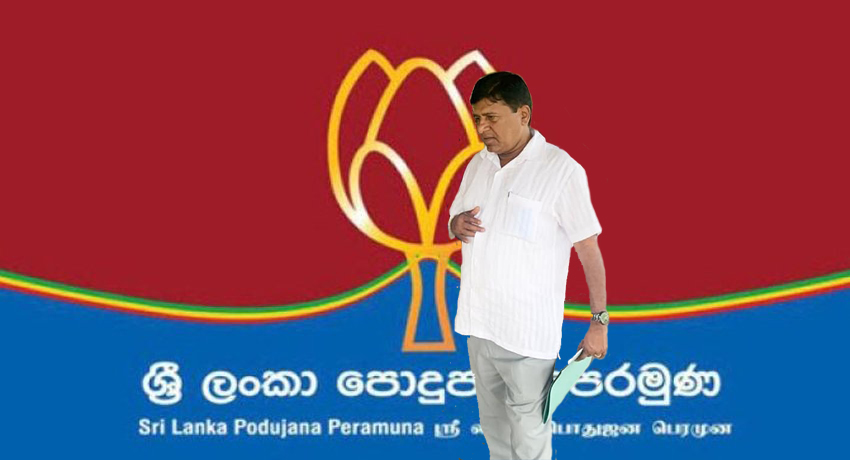The Human Rights Commission of Sri Lanka (HRCSL) is calling on the Acting Inspector General of Police, Mr. C D Wickremaratne to be cognizant of permissible laws of the country, in this case the Constitution and Sri Lanka’s international obligations in the human rights sphere, when making arrests even during times of emergencies.
In a letter dated April 25, 2020 addressed to the Acting IGP, the letter raises concern about the spate of recent arrests in connection with statements made on social media with regard to the spread of the COVID-19 virus.
Signed by the chairperson of the HRCSL, Professor Deepika Udagama, the letter refers to the IGP’s communique of April 1, 2020 through the Police Media Unit to heads of media organisations, warning of strict legal action against any statements over the internet criticising the work of public officials involved in containing the spread of the virus. ‘The letter clearly conveys the message that criticism of officials will not be tolerated,’ it states. It is the duty of the Commission the letter further says to point out ‘that any action taken to limit freedom of expression and other such rights in a democracy, even during a period of emergency, must be within the framework of the law,’ adding that the laws guaranteed in the Constitution and the country’s international human rights obligations require that ‘limitations on rights should comply with the tests of legality, proportionality (limitation must be proportionate to the threat) and non-discrimination.’
Citing the Commissions powers and functions under its parent statute, Act No.21 of 1996, the letter addresses several issues under ‘Arrests on the basis of misinformation, Chilling of Criticism and Hate Speech.”
While acknowledging the need to curb misinformation that results in panic and poses a risk to public order when the country is facing a public health challenge, the letter points out that “arrests must be legally valid, must not be arbitrary and disproportionate and must not be carried out in a discriminatory manner.” The HRCSL states that B reports regarding the arrests cite Penal Code ( s.120), Computer Crimes Act, No. 24 of 2007 (s.6), Police Ordinance (s.98), Quarantine Ordinance, No. (ss. 4 & 5) and the Disaster Management Act, No. 13 of 2005(s. 24) for the legal basis for the arrests and adds that the application of the Quarantine Ordinance and the Disaster Management Act are questionable. S.4 of the Quarantine Ordinance can be invoked, says the statement only when a regulation under that Ordinance has been violated, adding that it is unclear how the alleged statements made by those arrested have violated current regulations under the Ordinance or obstructed the work of public officers. As well, in the absence of a declaration of a state of disaster, ‘which is approved by Parliament as required by s.11 of the Act’ the letter asks how s.24 of the Act is being applied.
Pointing out that one B Report does not provide the legal basis for the arrest, the letter states
that action taken by law enforcement authorities to curb the spread of misinformation which negatively impacts public order and public health must be based on sound legal basis. Therefore, the Acting IGP has been requested to review the basis for the arrests and ensure due process is applied, and that future arrests comply with the law.
The letter adds that it is through ‘criticism and commentary that we improve governance and strengthen democracy’, principles which have been firmly established through a series of authoritative judgements of the Supreme Court. Arresting anyone for merely criticising a public official or a policy, therefore, is unconstitutional, the letter says, which points out that the “right to comment on, and indeed criticize, the performance of public officials or of anyone else or any policy is a fundamental aspect of a democratic society.’
While appreciating the role of the police in supporting health officials during this crisis period, the letter draws the Acting IGP’s attention to two letters dated April 3, 2020, and August 28, 2019. While the 2019 letter had outlined guidelines on the application of s.3 of the ICCPR Act, the April 3 letter had urged that action be taken under the provision mentioned “against those who were attempting to incite religious division and hatred in the context of the current health crisis.’ However, it adds that it is “essential to ensure that s. 3 is invoked in a non-discriminatory manner providing protection to all communities. If not, the law becomes a weapon against certain communities and defeats the very purpose for which it was enacted by Parliament.”
On April 5 and April 7, two groups, the Young Journalists Association, and a collective of human rights activists respectively, wrote to the HRCSL and to the Acting IGP protesting his directive. See story here: https://counterpoint.lktwo-groups-protest-against-acting-igps-order/
Read the full letter here:HRCSL letter to IGP





